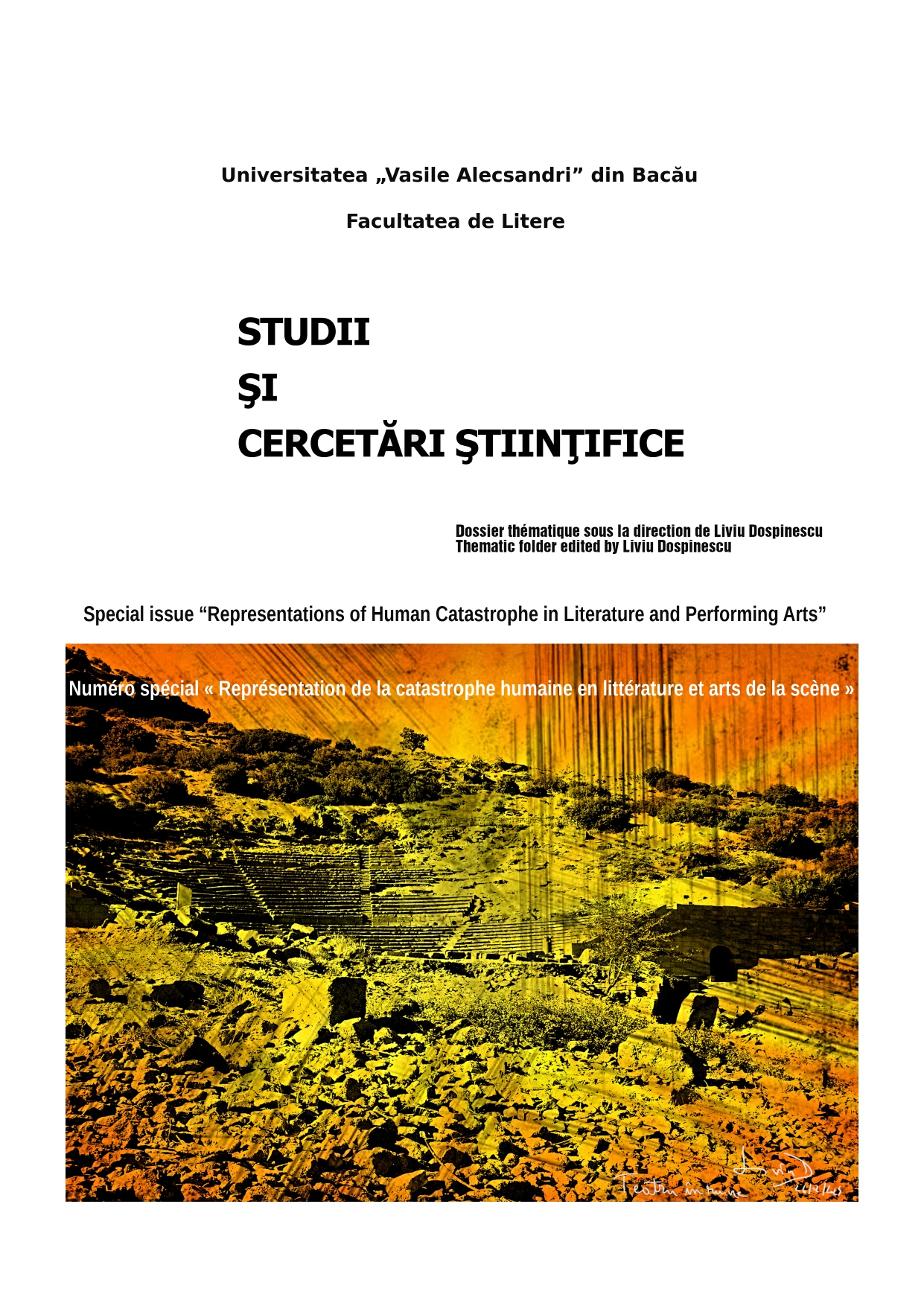“The Chorus Perishes” – On Esther Bol’s Theatre of Catastrophe
“The Chorus Perishes” – On Esther Bol’s Theatre of Catastrophe
Author(s): Yana MeerzonSubject(s): Language and Literature Studies, Studies of Literature, Philology, Theory of Literature
Published by: Editura Alma Mater
Keywords: Theatre of catastrophe; Greek tragedy; dark catharsis; Esther Bol /Asya Voloshina; Russia’s invasion of Ukraine; Antigone
Summary/Abstract: In his book Death in Modern Theatre (2019), Adrian Curtin discusses how representation of death changed in modern theatre after two catastrophic events of the mid-20th century – the Holocaust of the Jewish people and the dropping of atomic bombs on Japan. One such change relates to the devaluing of a human life. As warranted by wars, climate disasters, and other global crises, catastrophe makes death trivial, a mere fact of our existence, and so constantly recapped and heavily mediatized, catastrophe makes it impossible for us to grieve properly. Theatre of catastrophe, I argue, focuses its artistic investigation on the causes and consequences of mass destruction and death, it also documents social, political, and ethical processes that caused them. Yet, it often uses devices of sensationalism, melodrama, and affect to depict and transmit the sense of immediacy and disaster that catastrophe carries. The work of Esther Bol, Russian contemporary playwright, with a clear antiwar and pro-Ukrainian position, constitutes my case study. It allows me to examine how in the theatre of catastrophe the fate of many takes over the fate of one, and how this art form capitalizes on the sense of horror as experienced by the victims of mass death and on the sense of irredeemable guilt that a bystander feels, when watching the catastrophe unfolding in front of their eyes.
Journal: Studii și cercetări științifice. Seria filologie
- Issue Year: 2023
- Issue No: 50
- Page Range: 29-53
- Page Count: 24
- Language: English

